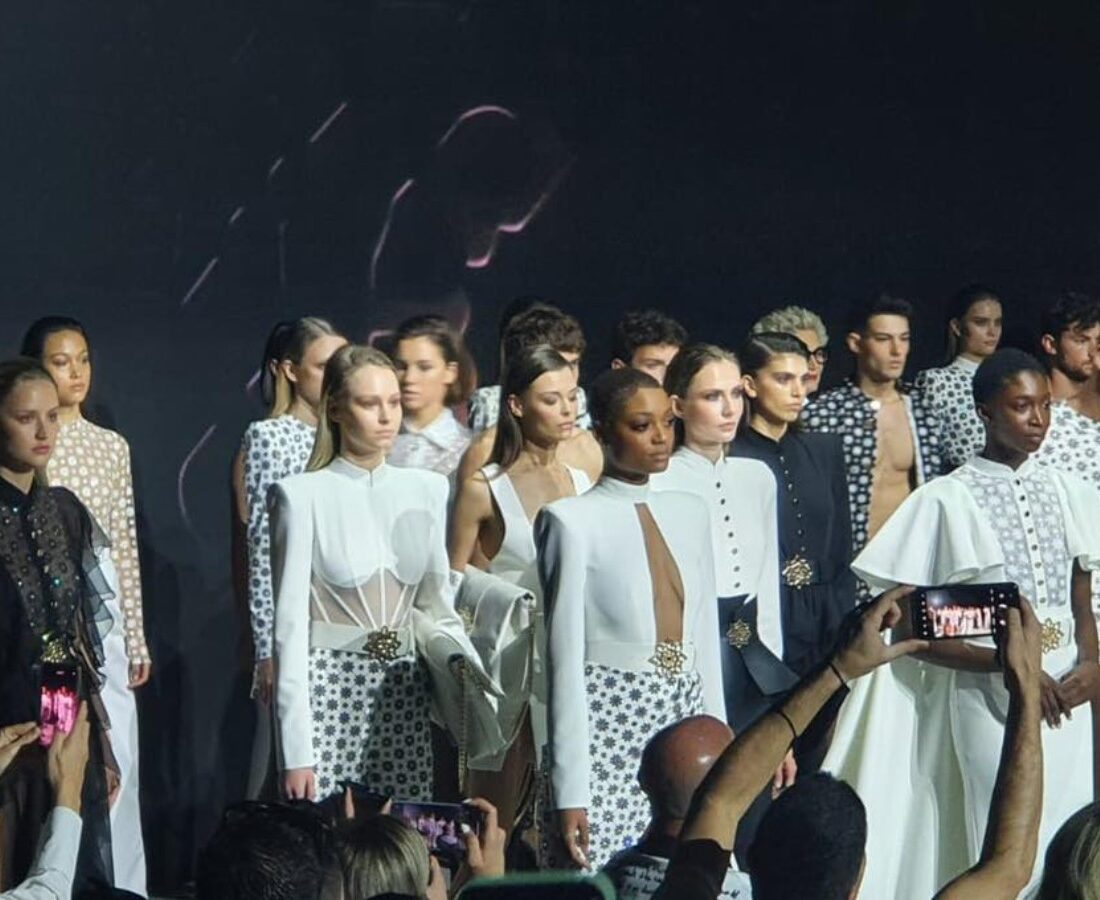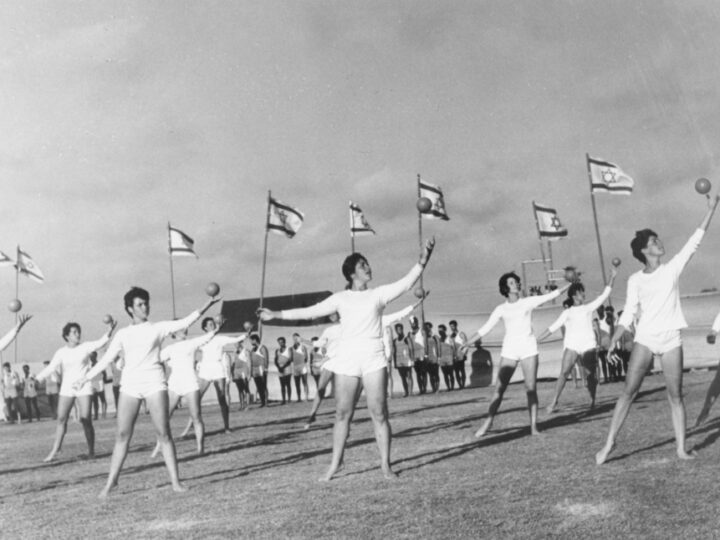The first remarkable thing about Kornit Fashion Week Tel Aviv 2022 was that it took place live and in person, at Hangar 11 in the Tel Aviv Port, as opposed to last year’s prerecorded pandemic-limited event.
The second remarkable thing was that it opened on the night of April 3 with an exhibition of 30 styles by Emirati designer Mona El Mansouri in honor of Israel’s year and a half of normalized relations with the United Arab Emirates.
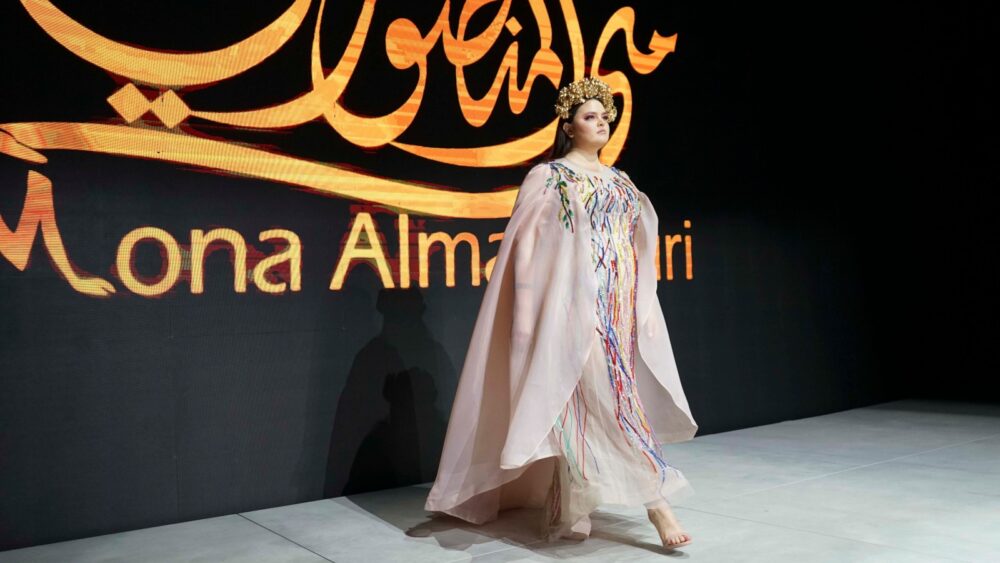
And the third thing was its focus on the convergence of design, technology and sustainability.
The four-day show was sponsored by Rosh Ha’Ayin-based multinational company Kornit Digital and showcased the power of on-demand production.
All the designer collections were digitally printed with a range of materials — faux leather, faux fur, metallics, spandex, organza, chiffons, silks, nylon, lurex fabrics, natural fabrics, synthetics, rhinestones and sequins — created in a few weeks, unlike typical fashion and textile production processes that take over six months.
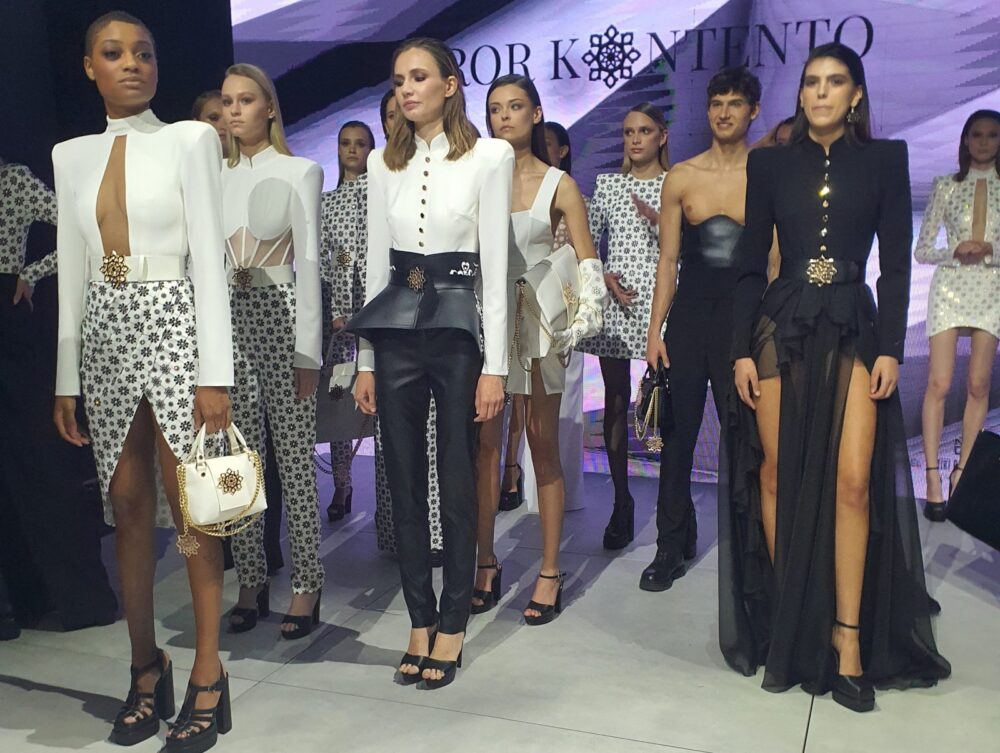
Kornit’s digital printing systems and workflow software are expected by 2026 to enable production of 2.5 billion apparel items while saving 4.3 trillion liters of water and 17.2 billion kilograms of greenhouse gas emissions – reducing overproduction by 1.1 billion garments.
Mobile secondhand shop
The Tel Aviv-Yafo municipality underscored the sustainability aspect by displaying “Autobeged,” an electric vehicle converted into a secondhand mobile boutique that will travel around the city collecting pre-worn clothes and selling them at very competitive prices to benefit people with disabilities.
Autobeged is a project of Second Love, a secondhand clothing store operated by people with disabilities under the municipal corporation Matash.
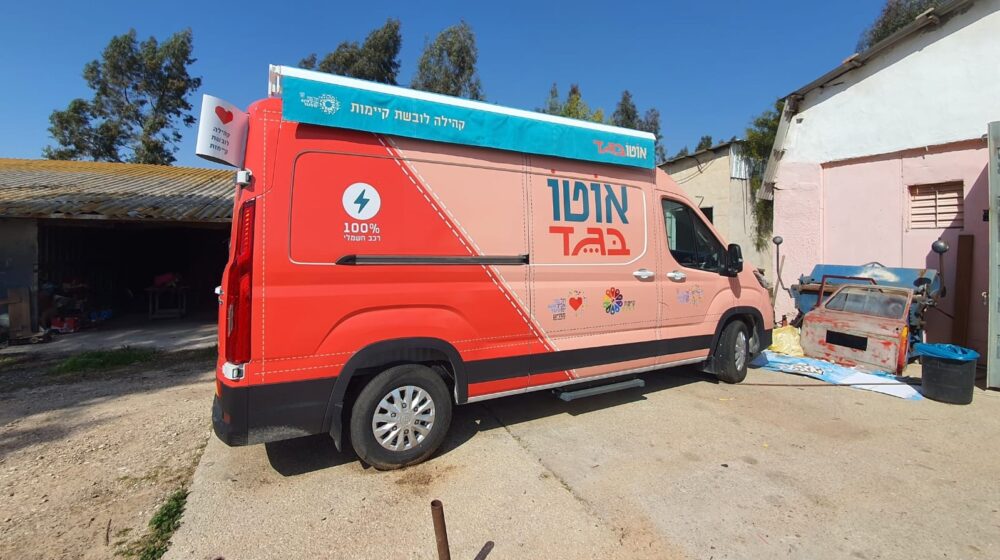
Tradition reigned in one critical area: The event was produced by Israeli fashion icon and entrepreneur Motty Reif, who resurrected and modernized the 1980s Tel Aviv Fashion Week concept in 2011.
He pointed out that the runway was shared by a diverse and inclusive array of designers, models and garments.
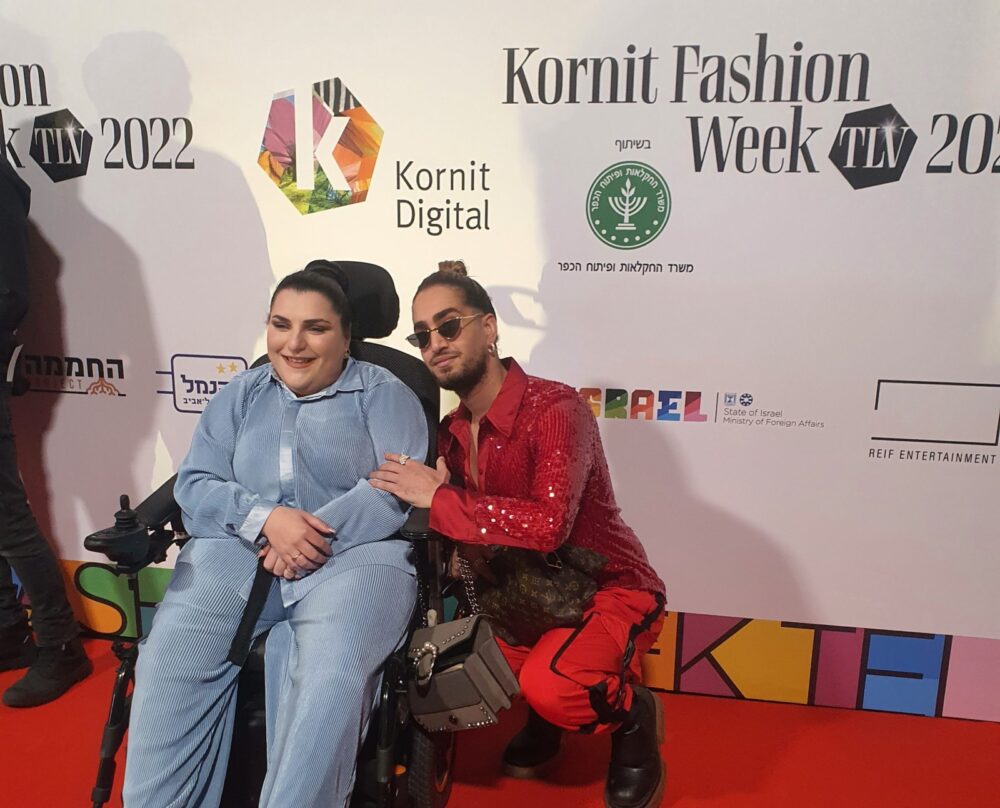
“In the past two seasons, Fashion Week has made a great effort in putting out the message that fashion belongs to everyone, that you should feel good with yourself whatever size, body shape or age you are,” Reif said.
This year’s emphasis on sustainability wasn’t only about the production process. It was also about the look. Many items sported a fruit-and-vegetable theme in a nod to the importance of supporting local agriculture.
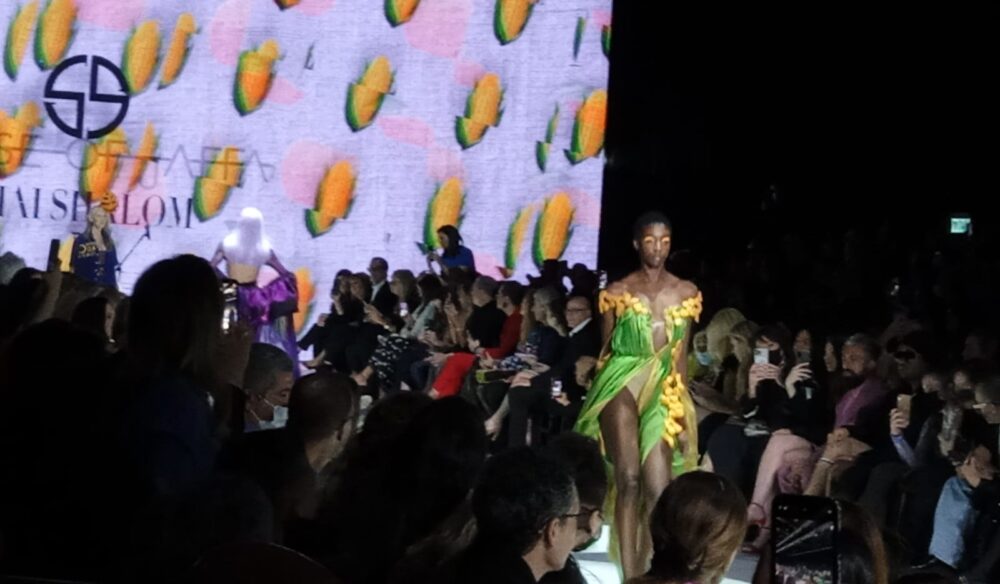
Reif noted that the presence of journalists and fashion critics from countries including the United States, United Kingdom, France and Bahrain underscores the growing availability of Israeli fashion designs online.
Some designers highlighted at the event were established brands such as Maskit, Alon Livne, Shahar Avnet, Ronit Raphael, Tovale, Bananhot, Shenkar, Sigal Dekel and Teva Naot, but young and less well-known names were prominent as well.

The roster included Dror Kontento, Shai Shalom, Idan Laros, Efrat Kalig, Northern Star by Nadav Rosenberg, Sabina Musayev, Seven Seventy, Aharon Genish, House of Jaffa, Içiàlàbas, Jennifer Kim, Rotem Shaul, Yanky and Nataf, Kesh Limited, David Weksler, Shir Goldstein, Shon Balaish and Chana Marelus.
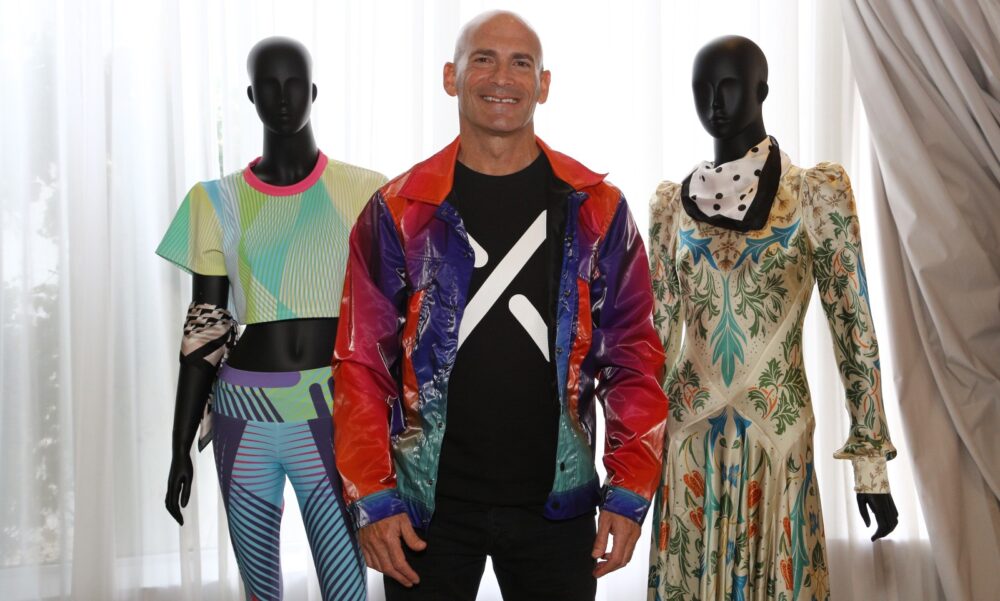
Ronen Samuel, CEO of Kornit Digital, said the fashion and textile industry “is at a critical inflection point as the design, technology and fashion worlds converge.”
Kornit Digital, founded in 2002 and boasting 882 global employees serving customers ranging from Amazon to mom-and-pop t-shirt shops, unveiled upcoming green solutions at Fashion Week.
These include technology for mass direct-to-garment production as well as an industry-first high-volume digital decoration solution for polyester and polyester-blend apparel meant to transform the multibillion-dollar professional and recreational sports apparel and teamwear markets.




